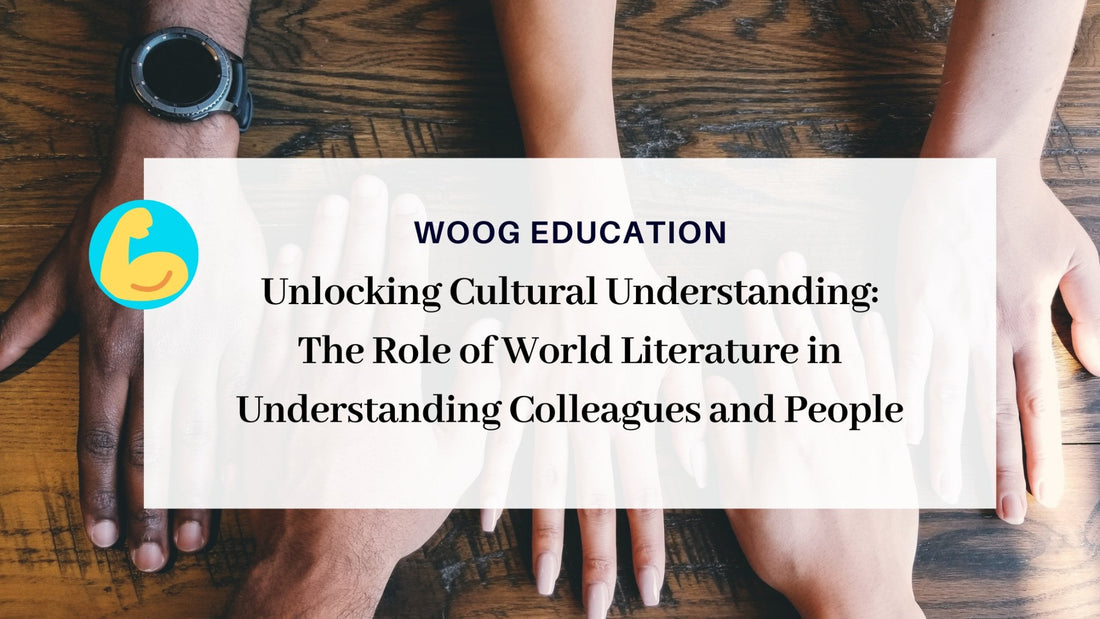In today's interconnected world, cultural diversity is an intrinsic part of our professional and personal lives. Understanding and appreciating diverse perspectives is crucial, especially in workplaces encompassing people from varied cultural backgrounds. Studying world literature becomes instrumental in fostering this understanding, shaping our perceptions, and aiding us in comprehending colleagues and people beyond geographical boundaries.
- Embracing Cultural Diversity
World literature introduces readers to diverse cultures, customs, and societal nuances. Engaging with literary works from different regions broadens our cultural horizons, allowing us to appreciate the richness of various traditions, beliefs, and lifestyles. This exposure lays the foundation for embracing and celebrating cultural diversity in our interactions with colleagues and people from different backgrounds.
- Exploring Varied Perspectives
Literary works offer insights into the human experience across continents and eras. By delving into narratives penned by authors from diverse cultural backgrounds, we explore different viewpoints, ideologies, and societal norms. This exploration encourages an open-minded approach, enabling us to comprehend the complexities of varied perspectives our colleagues bring to the table.
- Fostering Empathy and Understanding
World literature often delves into human emotions, struggles, and triumphs, fostering empathy. By empathizing with characters facing diverse challenges, readers develop a deeper understanding of human emotions and experiences. This empathy extends to understanding colleagues' challenges, fostering a supportive and empathetic workplace culture.
- Bridging Cultural Gaps
Literary works act as bridges, connecting individuals across cultures. Reading stories set in unfamiliar settings or with characters from different cultural backgrounds helps break down barriers. This shared experience through literature assists in bridging cultural gaps, fostering camaraderie, and creating a more cohesive work environment.
- Enhancing Communication Skills
Studying world literature enriches our language and communication skills. Exposure to different linguistic styles and narrative structures sharpens our ability to communicate effectively. This linguistic versatility aids in clearer communication and better understanding when interacting with colleagues whose first language might not be our own.
- Challenging Stereotypes and Biases
Literature challenges stereotypes and biases by presenting nuanced and authentic portrayals of diverse cultures. Through realistic depictions of characters and cultures, readers confront misconceptions and preconceived notions. This confrontation encourages us to question assumptions and biases, promoting a more inclusive and equitable workplace atmosphere.
- Encouraging Respect and Collaboration
Literary works often emphasize themes of respect, collaboration, and shared humanity. By internalizing these values portrayed in literature, individuals are encouraged to approach colleagues with respect, collaborate effectively, and appreciate the contributions of diverse perspectives, fostering a more harmonious work environment.
- Stimulating Curiosity and Continuous Learning
World literature stimulates curiosity and a desire for continuous learning. Exploring narratives from different cultures nurtures a thirst for knowledge and a willingness to learn about others. This curiosity fuels ongoing learning about colleagues' backgrounds, experiences, and cultural contexts, promoting mutual understanding and respect.
- Encouraging Cross-Cultural Dialogue
World literature encourages dialogue about cultural differences and similarities. Reading and discussing literary works from various cultures stimulate conversations about traditions, values, and societal norms. This open dialogue provides a platform for colleagues to share experiences, enhancing mutual understanding and fostering a more inclusive and accepting workplace culture.
- Promoting Global Awareness and Sensitivity
Studying world literature promotes global awareness and sensitivity. It exposes readers to global issues, historical events, and societal dynamics across different regions. Understanding the complexities of global challenges through literature cultivates a sense of responsibility and a global perspective among colleagues, encouraging them to approach issues with sensitivity and a broader worldview.
Conclusion: The Transformative Power of World Literature
In conclusion, world literature serves as a potent tool for understanding colleagues and people in a culturally diverse world. It fosters cultural appreciation, empathy, communication skills, and respect, essential qualities in today's global workplaces. By embracing the narratives and experiences depicted in world literature, individuals can build stronger connections, foster inclusivity, and navigate the complexities of cultural diversity with grace and understanding.
